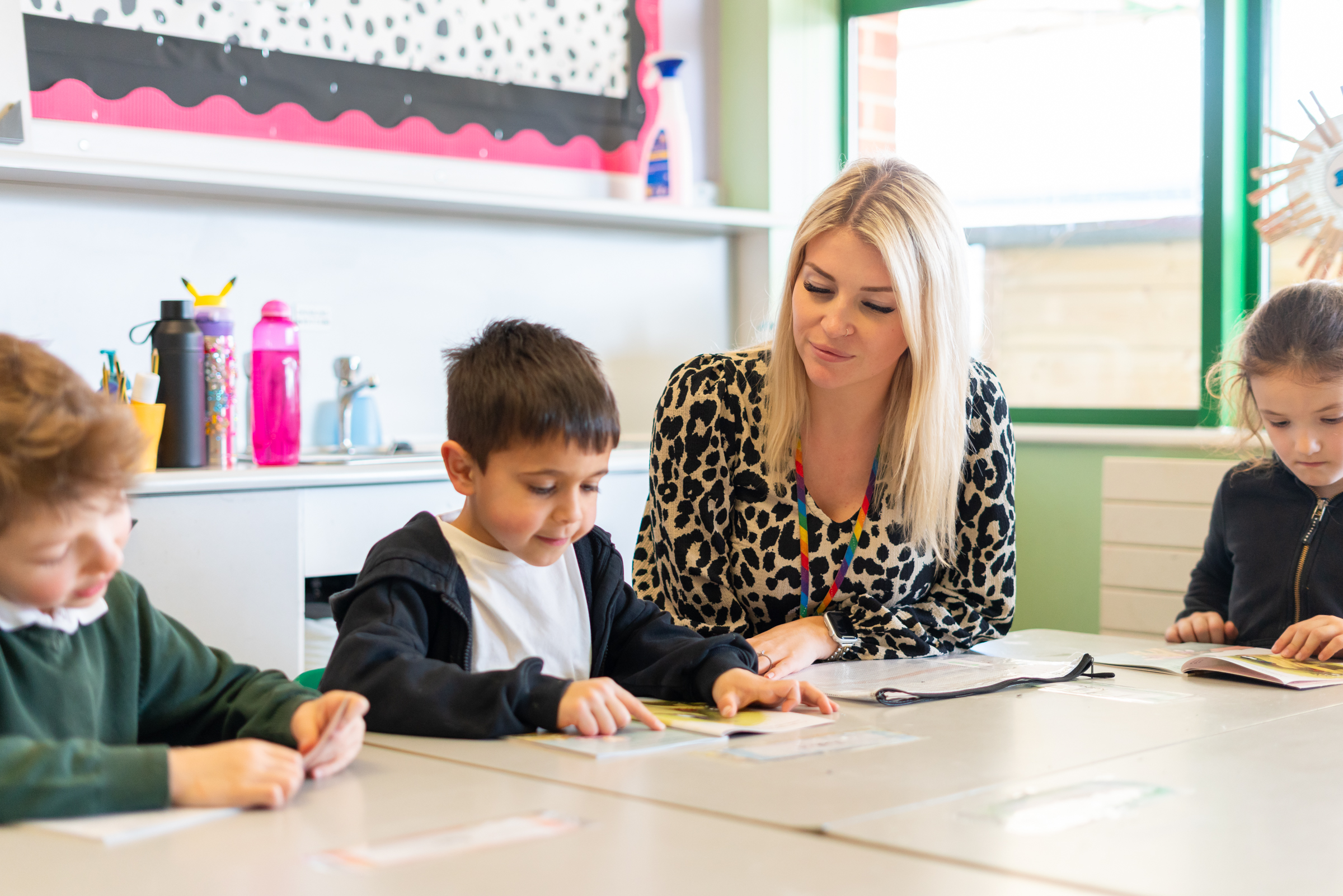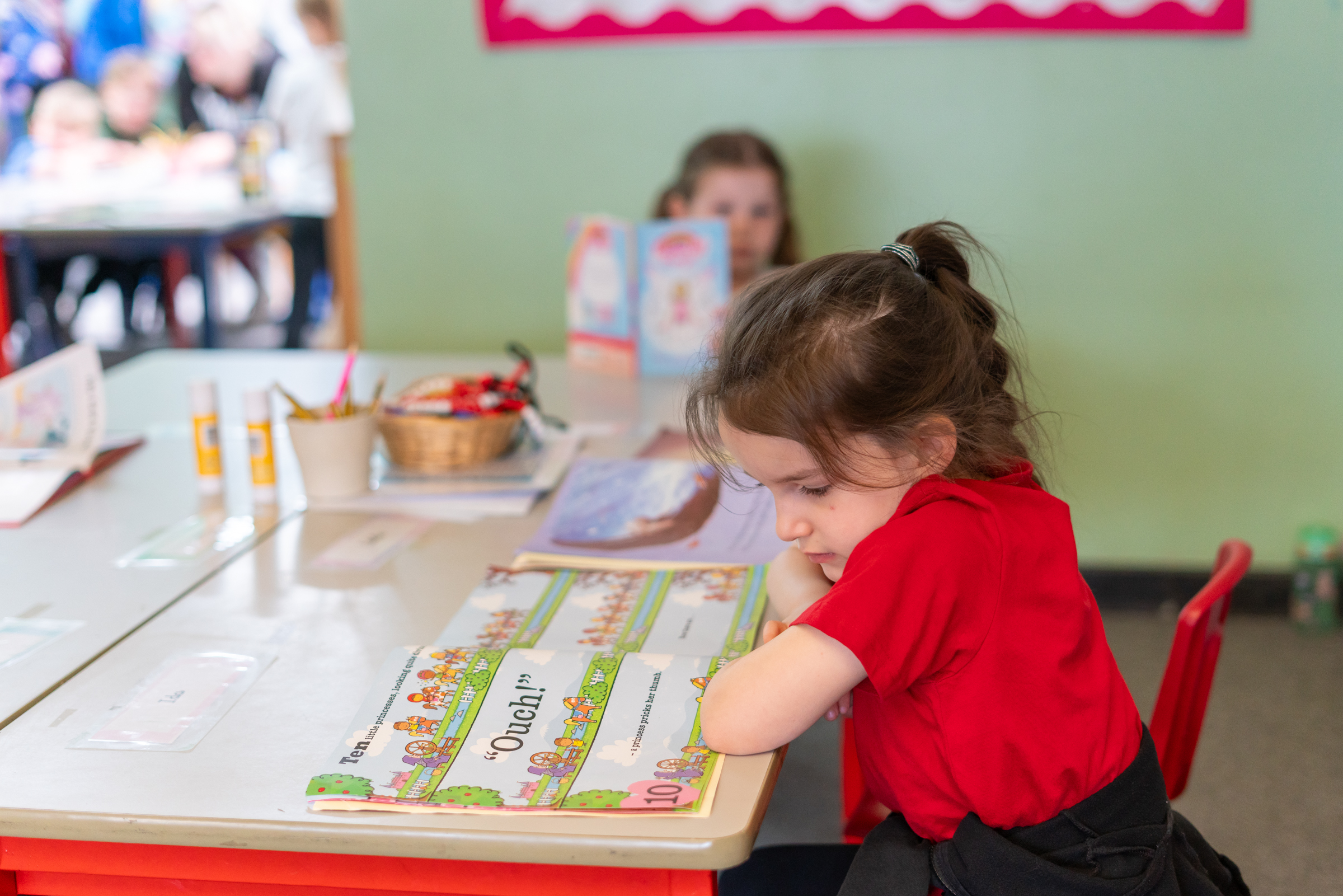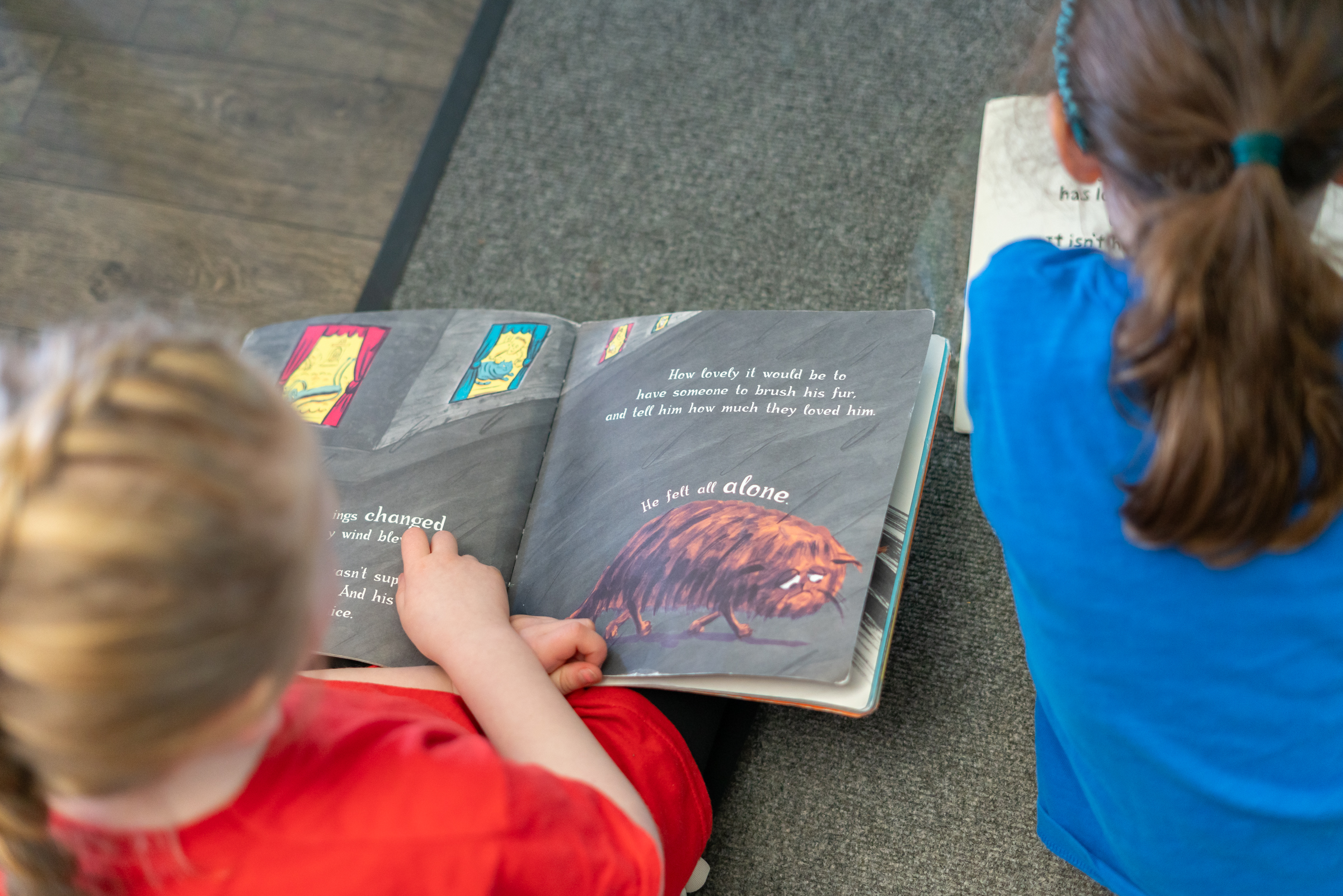English Reading Subject Leader: Mrs L Nicholls and Miss E Donovan (Early Reading lead)
The skills of language are essential to enable an individual to fully participate in the world in which they live and express their ideas and emotions. Reading gives pupils the chance to develop culturally, emotionally, intellectually, spiritually, and socially, allowing children to acquire new knowledge; reading plays a key role in development.
Intent
At Halling Primary School, Reading is given top priority as we fundamentally believe that it has an important place in our society. We aim to inspire an appreciation of our rich and varied literary heritage and a habit of reading widely for pleasure – a real ‘love of reading’ for all.
We strive for all children to be strong independent readers, growing in their abilities as they progress throughout their years at Halling; reading for a range of different purposes and audiences.


Implementation
Throughout their reading journey, we ensure the children are immersed in a range of genres and have a clear understanding of purpose. Our children will have a secure understanding of the purpose of a text type, the intended impact of writing skills/tools and the ability to carefully select vocabulary with careful attention to the desired effect on the readers’ thoughts and feelings. All pupils develop the following reading skills throughout their school journey: Decoding and Word Reading, Prosody, Inference, Vocabulary, Prediction, Explanation, Retrieval Summarising and Sequencing.
In EYFS and KS1, and also for pupils who need additional reading support in KS2, we use the Little Wandle Letters and Sounds Revised early reading scheme. As part of this scheme, pupils engage in small group reading sessions, including ‘keep-up’ sessions, which develop word reading, comprehension and prosody and increase reading fluency for children.
In KS2, pupils’ reading lessons are centred on a range of texts (carefully selected from Lemov’s Plagues of Reading) and develop the VIPERS skills.
In addition to daily Reading lessons, children excel in reading through high-quality phonics teaching (at Halling we follow Letters and Sounds Little Wandle) and daily opportunities for story-telling. We use a wide variety of quality texts and resources to motivate and inspire our children. We also provide a wealth of enrichment opportunities, including, for example, World Book Day, National Poetry Day, Buster Book Club, and the Halling Summer Reading Bingo.
Impact
As a result of our progressive and structured approach to the teaching and learning of reading, we have a community of enthusiastic and confident readers. Furthermore, our attainment at the end of EYFS, KS1 and KS2 is above that of Medway and the national average with pupils’ skill of reading being one that enhances all aspects of their learning and wider life.

English Reading in Each Stage
Reading is taught using the Little Wandle Revised Letters and Sounds phonics scheme. It focuses on both word reading, through the teaching of systematic phonics, comprehension through a range of reading skills, including retrieval, inference and vocabulary, and prosody, which includes intonation and expression when reading aloud. We work with parents to support our children in learning to read, and provide workshops and reading cafés so that parents can come in to work with their children, supported by our EYFS teaching team.
Children who are at the expected level at the end of Year R are able to say a sound for each letter in the alphabet and at least 10 digraphs. Be able to read words consistent with their phonic knowledge by sound-blending. Be able to read aloud simple sentences and books that are consistent with their phonic knowledge, including some common exception words. They will also be able to demonstrate understanding of what has been read to them by retelling stories and narratives using their own words and recently introduced vocabulary; anticipate – where appropriate – key events in stories; and use and understand recently introduced vocabulary during discussions about stories, non-fiction, rhymes and poems and during role-play.
To read our Phonics and Early Reading Policy, please visit the policy page.
Pupils will be able to join in with simple rhymes and phrases from traditional tales. They will be able to retell the beginning, middle and end of stories and find information in simple non-fiction texts. They will be able to make comments about what they have read and answer questions such as ‘What do you think might happen next?” Pupils will use their knowledge of phonics to segment and blend words and read books to build up their fluency, confidence, understanding and enjoyment. They will read words containing the suffixes -s, -es, -ing, -ed, -er and -est and begin to understand the use of the apostrophe for the omission.
Pupils will talk about books that are read aloud to them and discuss their thoughts about the events and what may happen next. They will begin to recognise the features of non-fiction books (e.g. illustrations, headings, contents and index) and use these to find information. They will retell stories using familiar story structures and language, such as ‘Once upon a time’ and learn simple poems by heart. With adult support, they will begin to use dictionaries and thesauruses to find the meanings of new words. Pupils will use their growing phonic knowledge to read familiar and unfamiliar words and words containing the suffixes -ing, -ed and -ful. They will be involved in choosing their own reading books and building up their fluency, confidence, understanding and enjoyment.
Pupils will listen to and discuss a wide range of fiction (including poetry and plays) and non-fiction texts. They will be able to retell fairy stories and myths and legends and talk about a character’s thoughts, actions and feelings. Pupils will be able to identify adjectives and adverbs and use dictionaries and thesauruses to find the meanings of new words. Pupils will begin to self-correct reading errors using their knowledge of phonics and spelling patterns. They will begin to recognise different forms of poetry (e.g. acrostic, calligram, kenning and free verse).
Pupils will confidently recite poems by heart and participate in discussions about books. They will be able to use evidence from the text to answer questions about a character or setting and to give their opinion. Pupils will summarise the main ideas, giving key details, which include some quotations and references to the text. They will read aloud fluently with confidence and expression. Pupils will confidently make their own book choices, considering challenges and preferences whilst widening their range of reading to include new authors and a range of genres.
English Reading Progression
Assessments
At Halling Primary School, we follow the Chris Quigley ‘Essentials’ Curriculum which sets out essential coverage, learning objectives, standards, and progress measures that are required for all subjects.
For Maths, GPAS (Grammar, Punctuation and Spelling) and Reading, the children will be assessed formally twice a year in Years 1, 2, 3, 4 & 5 and 3 times per year in Year 6. These assessments give the children a standardised score.
SEND Information
Teachers adapt activities for accessibility for SEND groups and challenge more able and confident readers. Additional reading support is available for vulnerable children.
Children in Reception and Year 1 who are receiving additional phonics ‘Keep-up sessions’ read their reading practice book to an adult daily, this ensures consistency and pace of progress.

